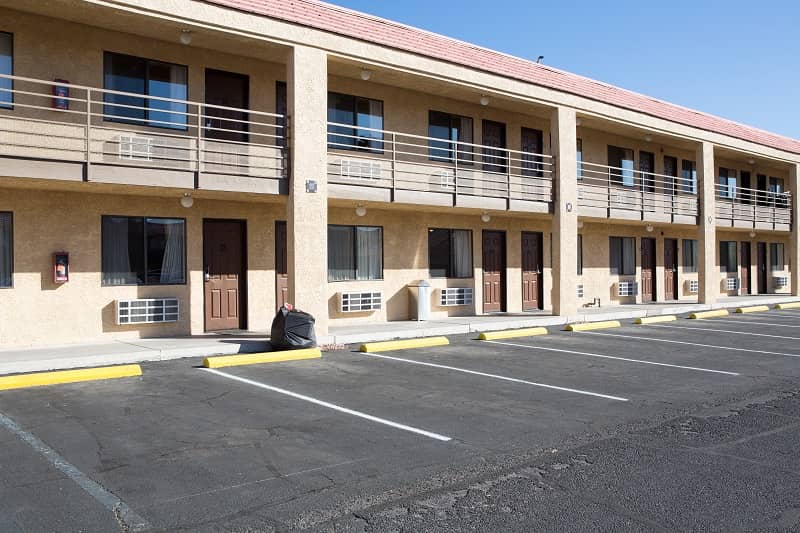

Summary
Public policy advocates often find that spending extended periods at the Oregon State Capitol in Salem can lead to growing cynicism about the public process. But every once in a while, you experience something that restores your faith in what you do. April 5, 2007 was one of those days. I traveled to Salem with a delegation from Portland to testify in support of House Bill 3010.
Word count: 846
Public policy advocates often find that spending extended periods at the Oregon State Capitol in Salem can lead to growing cynicism about the public process. But every once in a while, you experience something that restores your faith in what you do. April 5, 2007 was one of those days.
A mostly African American delegation from Portland traveled to the Oregon StateCapitol to testify in support of House Bill 3010, the Freedom to Choose My School Grant program. The bill would create a pilot project to allow 1,000 low-income students to take the state funding for their education and go to any school, public or private in Portland.
The bill got a hearing because State Representative Betty Komp (D-Woodburn) believes that low-income residents of Portland deserve an opportunity to be heard, and she chairs the House Subcommittee on Education Innovation.
We presented subcommittee members with copies of Cascade Policy Institute’s summary of three decades of educational failure in Portland’s only primarily Black high school, entitled Leaving Most Children Behind: 30 Years of Education Reform at Jefferson. The report details the stark graduation rates in the community: Nearly 50% of African Americans and Latinos drop out. Our research estimates that more than 7,000 Northeast Portland students have gone through the Portland Public School system over the last 30 years and either dropped out or failed to leave school able to read and do math at a 12th-grade level.
Damon Miller went to school in Portland and told the Committee, “I did graduate, but I watched more than 60% of my fellow…African American males not graduate—walk across the stage with empty diplomas.” As I told the committee, “Those people didn’t just disappear. You see them at the unemployment and welfare lines when we fail to deliver the education people need and want. HB 3010 is a pilot project designed to answer the question: Do low-income parents want access to school choices outside of what they are being offered today?”
One after another, members of our delegation stepped forward to challenge the status quo. Esther Hinson, a teacher who helps dropouts get their G.E.D., told the Committee, “It’s time to break the cycle, and I think school choice is the way to go.”
Jomo Greenidge dropped out of school in Portland even though he had Mensa-level SAT scores and was tutoring other students in college-level math. However, his GPA was low. “My problem was not that I wasn’t smart or that I didn’t love to learn,” Greenidge testified. “My problem was that my school was a bad fit for me. And I did not graduate and I did not go to college for seven more years.”
Greenidge still tutors kids in the area who feel trapped in a public school that doesn’t work for them. “Sometimes as educators we have to look at ourselves and say maybe we are not the best solution for the kids we are dealing with. HB 3010 will provide an opportunity for some kids to thrive in an environment that would suit them. Without this bill you take a position of arrogance that says, ‘We are the best at what we do, and what we do will serve all of our kids.’”
Kathryn Hickok, from the Children Scholarship Fund-Portland (facilitated by Cascade Policy Institute), described the privately funded partial-tuition scholarships they have provided to hundreds of children from low-income families. She submitted letters from a number of grateful CSF students.
Hickok told the Committee, “Low income families care about their children very much, and they will make any sacrifice they can to choose the best environment for their children.”
Abel Araya is a CSF student attending a private high school in Portland. He plans to attend college after graduation. “Growing up my parents always wanted me to be successful and get a good education. CSF has put me in an atmosphere where that is possible. They have given my family a sense of relief and provided me with a better education and the confidence that I will succeed.”
Pastor Fred Woods talked about his 18 years of work with juveniles in the parole and probation system, where he consistently noticed the kids were all low academic achievers. “What I found was that if you’re low academically, there’s an increase in pregnancy, crime, violence, drugs, homelessness. Is it fair because I come from a low-income family that I can’t receive a quality education?”
Maura Ciota runs a non-profit program for low-income youth in the community affected by the bill. “I’m an Irish Catholic Democrat. This is a bipartisan bill. It’s not a Republican thing. Competition isn’t bad. I’ve got a lot of union members in my family and I support this bill.”
HB 3010 is co-sponsored by 29 Republicans but faces an uphill battle because the Oregon Legislature is controlled by Democrats. School choice is supported with a passion by both Democrat and Republican lawmakers in Arizona, Utah, Wisconsin, Florida, Washington, D.C. and elsewhere. This first hearing in Salem was a crucial step in an Oregon civil rights movement that is long overdue.
Attention editors and producers:
Cascade Commentaries are provided for reprint in newspapers and other publications, with credit given to author(s) and Cascade. Contact Cascade to arrange print or broadcast interviews on this commentary topic.
Electronic text files are available online at www.cascadepolicy.org.
Please contact:
Nancy Wheaton
Cascade Policy Institute
4850 SW Scholls Ferry Rd.
Suite 103
Portland, Oregon 97225
Phone: (503) 242-0900
Fax: (503) 242-3822
www.cascadepolicy.org
info@cascadepolicy.org
Cascade Policy Institute is a tax-exempt educational organization as defined under IRS code 501(c)(3). Nothing appearing in this Cascade Commentary is to be construed as necessarily representing the views of Cascade or its donors, or as an attempt to aid or hinder the passage of any bill before any legislative body. The views expressed herein are the author’s own.











